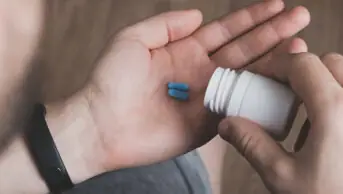Buprenorphine is one of the two medicines licensed for opioid misuse that is recommended by the National Institute of Health and Care Excellence, and the Department of Health and Social Care’s (DHSC) ‘Orange Book’. The cost of generic buprenorphine sublingual tablets has risen sharply because of supply shortages, and we are concerned.
The cost of prescribed medication is not ring-fenced and, increasingly, prescribing costs are included within the envelope of a substance misuse contract. We have no control over the price we pay for the medication prescribed within our services, so we bear the costs and associated risk when prices rise.
The value of drug and alcohol treatment contracts has fallen in recent years as local authorities look to balance reducing budgets during times of austerity. With these cuts, and as a specialist treatment provider, we have focused on innovation and providing more cost-effective ways to support the needs of our service users.
For example, we have launched a web-chat facility, where anyone who is worried about their (or someone else’s) drug and alcohol use can get confidential support for free. As well as cuts in drug and alcohol treatment budgets, there has been a rise in drug-related deaths, which are now at their highest level since comparable records began in 1993.
Addaction’s Medicines Management team monitors prescribing within our services to ensure that it is both cost-effective and safe. We also monitor fluctuations in the prices of medication that we prescribe and make recommendations for how prescribing can be altered in order to reflect changes in the pharmaceutical marketplace. This situation is no different in the wider NHS. However, drug and alcohol treatment services prescribe only a very small range of drugs, so price fluctuations can have a greater impact on budgets.
We want to spend our limited budgets on innovative, high-quality service delivery, so we can reach more people whose lives we hope to help change for the better.
We call on Public Health England, the DHSC and commissioners of drug and alcohol treatment contracts to recognise the impact of these price rises on our ability to provide excellent care to vulnerable members of our society. The devolvement of drug and associated dispensing costs to local authorities, and on to treatment providers, should be urgently reviewed. Costs for medication and dispensing fees should be ring-fenced within local authority budgets so that treatment providers are not taking the risk for costs that are outside their control.
Rachel Britton, lead clinical pharmacist, Addaction
Roz Gittins, director of pharmacy, Addaction
Lorraine Maden, lead clinical pharmacist, Addaction
Kelly Smith, prescribing information analyst, Addaction


